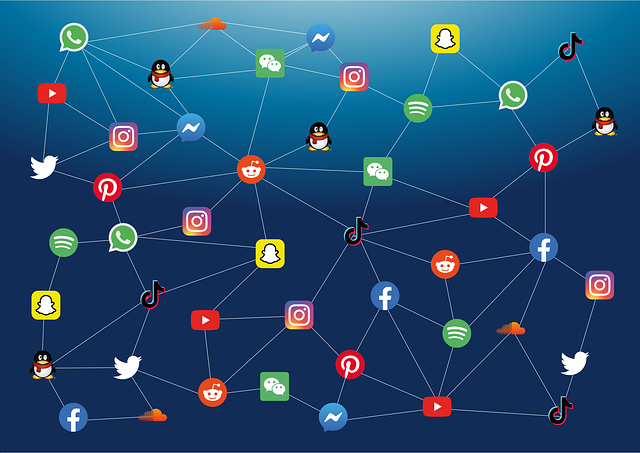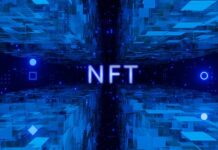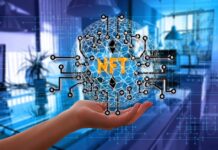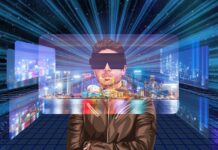By Sally Wu
As Facebook gets ready to invest billions into its Metaverse project and artists such as Arianna Grande make appearances inside virtual concerts, the early signs of the Metaverse revolution are already here.
The Metaverse term was originally coined by Ethereum founder Vitalik Buterin in 2008 to describe the decentralized Internet of the future.
We are not talking about a sort of flat, low-tech, decentralized Internet. However, an abstract internet composed of cryptographically authenticated transactions between peer-to-peer computers would be the more desirable version.
In a digital economy, anyone with a compatible computer, storage capacity, and internet access could join the network and generate value, making online goods and services like movies, games, music, and e-commerce available to all, free of the manipulations and limitations of a centralized economy.
WHAT IS THE METAVERSE?

Metaverse is a broad term. It generally refers to shared virtual world environments which people can access via the internet.
The term can refer to digital spaces which are made more lifelike by the use of virtual reality (VR) or augmented reality (AR).
Facebook also wants to transform into a metaverse of sorts where other platforms can integrate with their own AR and VR tools
These shared virtual worlds are less likely to be owned by any one company than a platform like Facebook or Microsoft’s (MSFT.O) Xbox gaming consoles which people have to buy.
The use of these virtual worlds is growing rapidly, as some see them as a safe alternative to real life.
Now some young people are even walking around with VR headsets on their heads.
The Metaverse has also drawn comparisons with James Cameron’s ‘Avatar’ movies, about a futuristic world where humans have been supplanted by an artificial race interacting in the virtual world, which feels real by all standards.
HOW WOULD IT WORK?
Imagine you’re visiting a restaurant in Metaverse and want to check the menu. You don’t have to enter any details into a computer or pick up your smartphone to navigate your way to the right page.
Instead, your headset tells you exactly what’s on the menu and you have the option to have it instantly ordered by talking to the waiter.
A waiter would then bring the order to your table and a food item is added to your menu.
Alternatively, you can pick up your phone and go on the internet to look up the menu on your own.
This would give you the chance to see what everyone else in the restaurant is eating and what the food is actually like, so you know what you want before you even order.
Metaverse is going to change the internet . It will allow a whole new generation to create value by allowing them to use their skills to create something new, all of which is possible thanks to Ethereum’s distributed database.
The Bitcoin blockchain offers to central banks the promise to restructure the traditional fiat currency system.
It is a brilliant step toward real decentralisation of power and reducing the role of states and banks in the economy.
When the financial system is completely decentralised, with no banks in existence and a public blockchain, this will make it impossible to keep control of the economy and the poor with money printed by the Feds.
I think bitcoin will be one of the last generations of financial software to have that chance. Maybe some banks will stick around in the network to host services but we will be left with a situation where there will be many competing digital currencies rather than just bitcoin.
THE METAVERSE BY 2030:
In 10 years, Metaverse is going to be a worldwide network of people using Metaverse in a virtual world. Metaverse will be the most popular virtual world in the world and its virtual currency will be at least as valuable as real dollars and ether will be worth even more. The value of the Metaverse Tokens will be the growth of the Metaverse Network, not necessarily the value of the Metaverse Token itself.
Metaverse’s mission is to be the easiest way for anyone to become an entrepreneur. Starting a small business, earning some money or starting a great project will become as easy as logging into Metaverse and creating your own virtual world. There will be a diverse array of virtual worlds, from social to commercial, and we are also working on VR apps. Everyone will be able to have their own NFT and sell it in the real world.
HOW APPS WILL BECOME DAPPS:

Industry leaders believe this type of blockchain will change the world of interconnection, putting individuals in control of their own data, providing universal access, providing transparency and accountability to data and pushing industry standards for the future.
As we approach a post-bitcoin world, the question of the use of the blockchain lies at the heart of all discussions in the cryptocurrency and blockchain field. Will new blockchains replace existing blockchains, will they be built into the network, and what benefits would we see from such an arrangement?
As we move from 1P to 1X, then to 2P, to 3P, to 5P and beyond, blockchain will continue to be part of the blockchain landscape. While it’s not an Internet protocol, blockchain has become an Internet platform protocol.
The rise of decentralized applications (Dapps) that run on blockchains shows how this future will play out. More and more mainstream internet companies will start to integrate blockchains into their DNA.
Right now, such companies have a blockchain presence, but that will change in the next few years. A big one to look out for in this regard is Microsoft. They recently announced that Microsoft Azure is getting in on the blockchain game. This means that Microsoft will start to focus on building blockchain-enabled solutions for their Azure customers.
That’s the key, and it’s not so hard to imagine how many other companies will quickly follow suit. The barrier to entry to the blockchain has been very low and already millions of people are invested in the technology. The path of least resistance is to build on it. However, not everyone is going to get to see what that future looks like.
We’re entering an era when the network will drive the evolution of the businesses. As this happens, demand will increase for new opportunities to build on the blockchain.
I expect that as that happens, decentralized application development will become a key driver in the application development market. One of the major downsides of blockchain is that it has a few significant limitations.
These limitations include regulation, justice, cost, and permissioning. These limitations are growing pains that we are still trying to overcome as the blockchain ecosystem gains traction and awareness.
Nevertheless, a metaverse built on blockchain and decentralised apps will power the virtual world and cyberspace and commerce of the future.
(The author is a content creator @ Startupanz.com)











